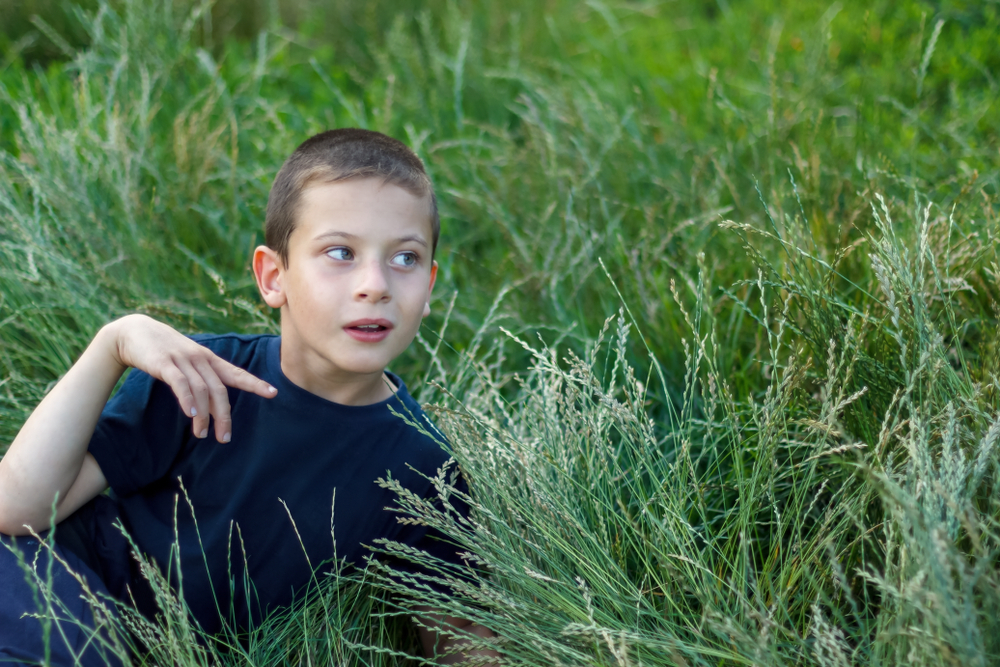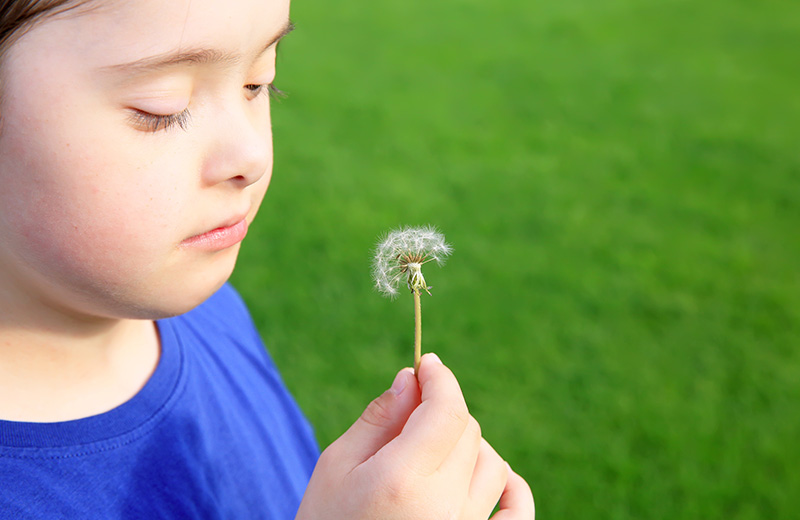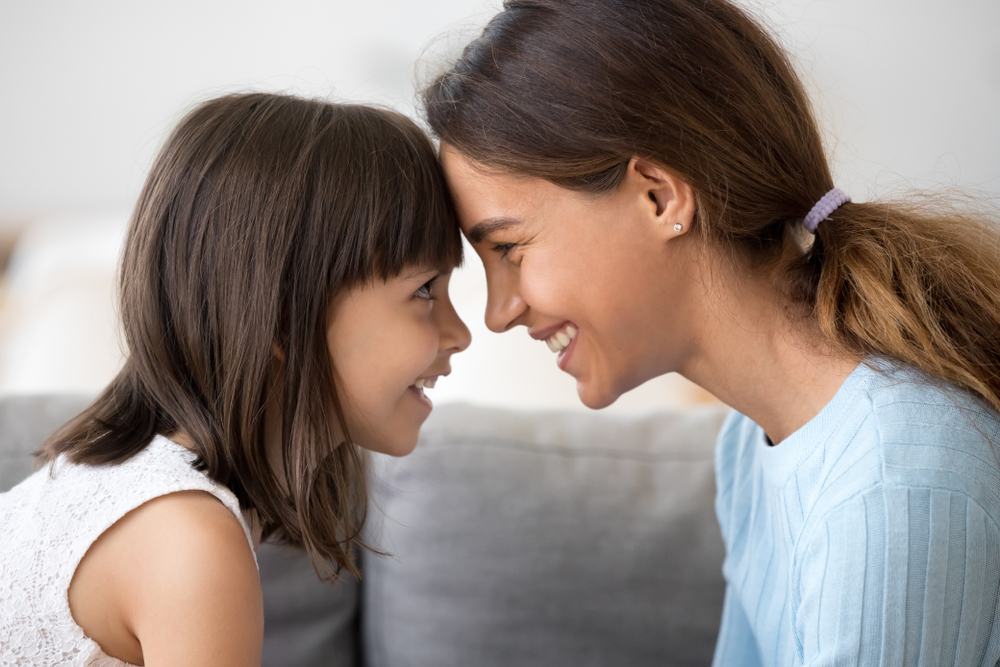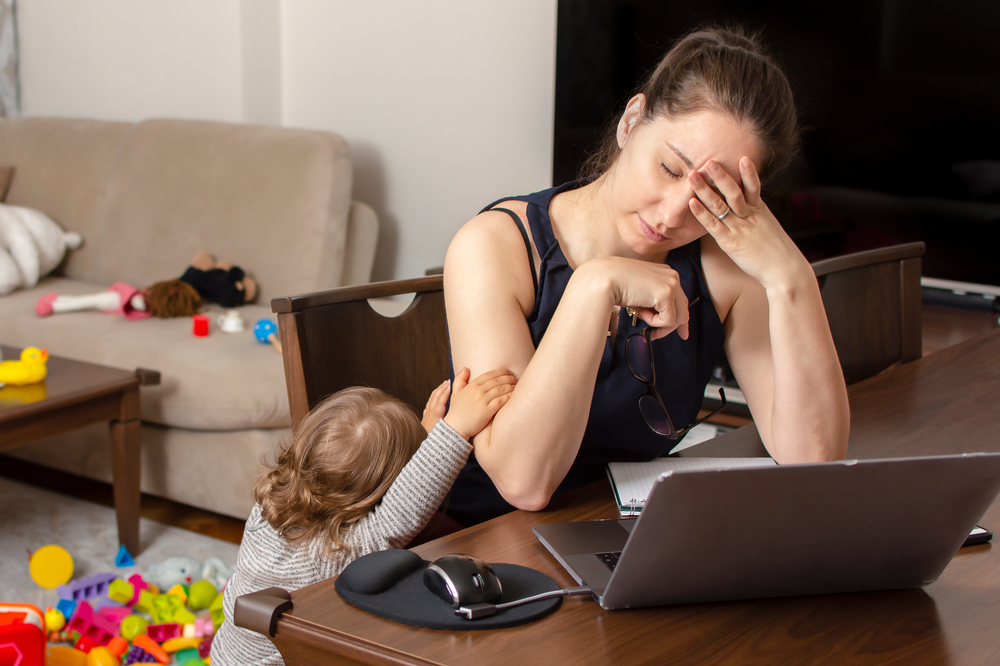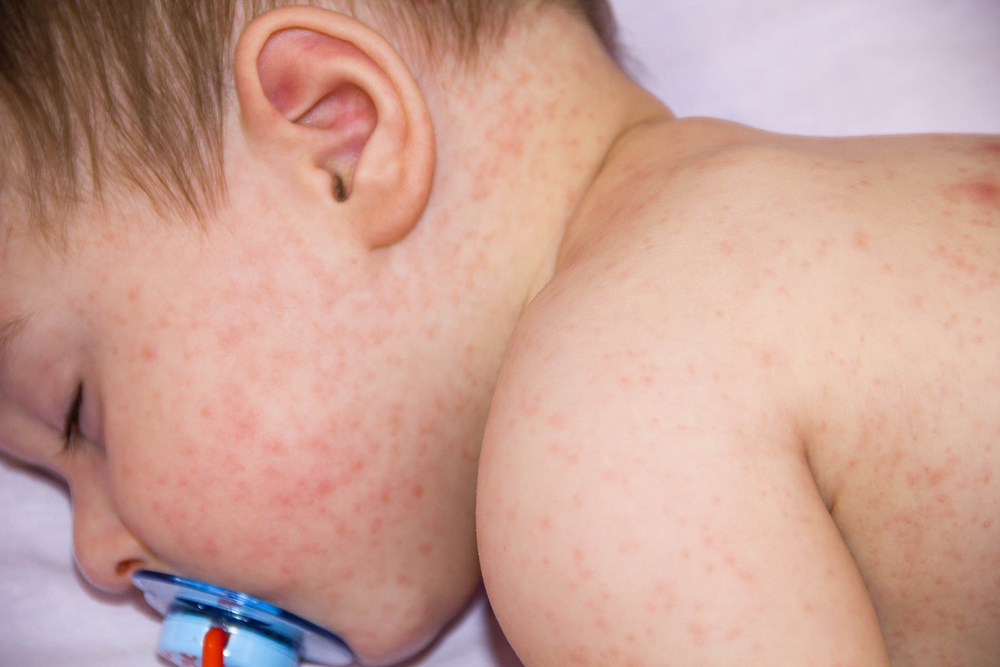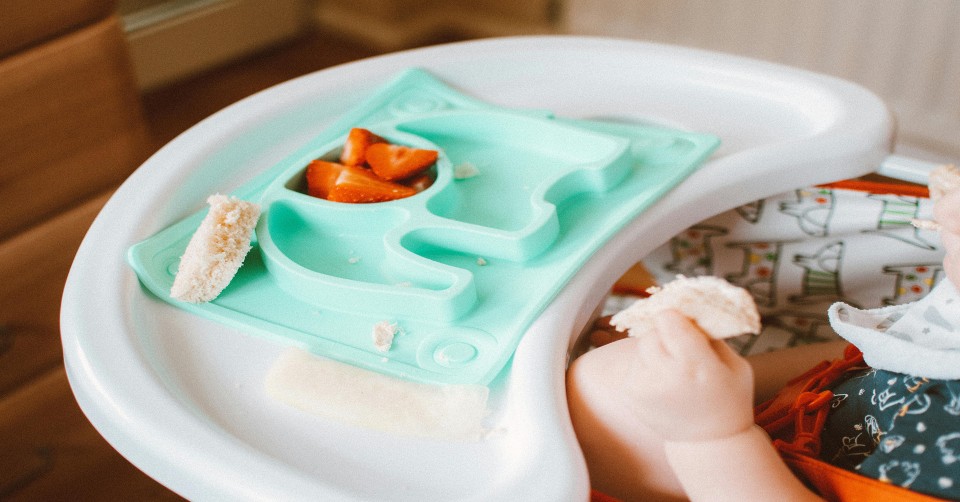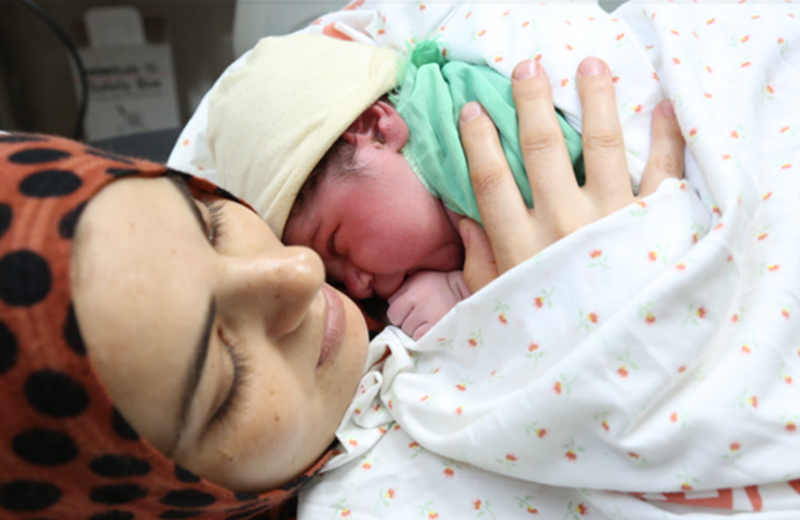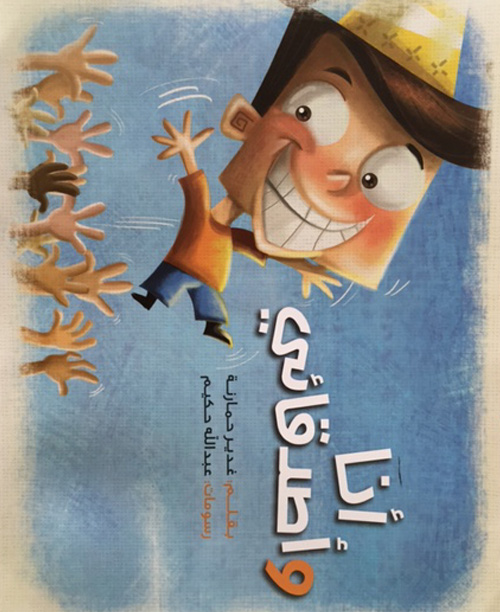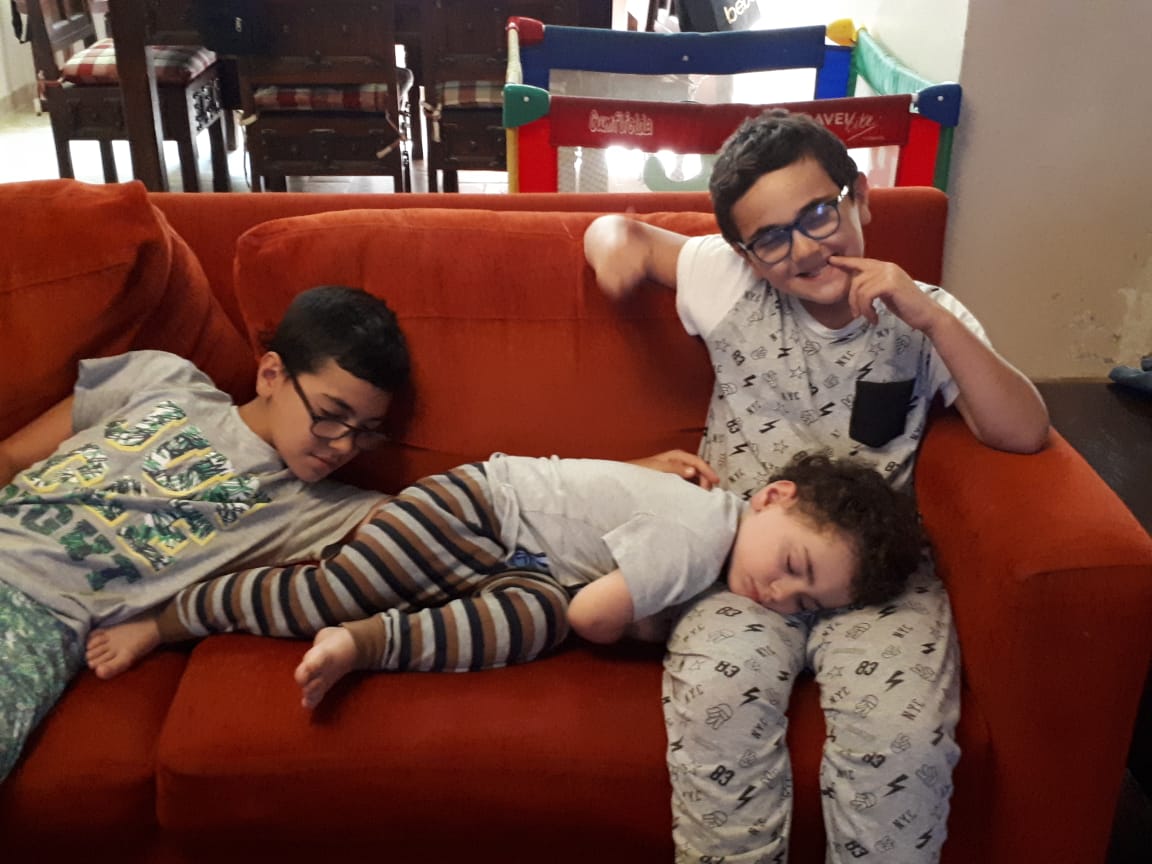Tips about Health
Most common questions about mental health

Q: How do wars affect children's mental health?
A: Wars can lead to psychological trauma, anxiety, depression, and behavioral changes in children due to exposure to violence, displacement, and loss.
Q: What are common signs of psychological trauma in children during war?
A: Common signs include nightmares, irritability, regression in behavior, and withdrawal from social activities.
Q: How can parents support their children's mental health during war?
A: Parents can provide a safe environment, listen to their children's fears, and seek professional psychological support if needed.
Q: How do wars affect the mental health of adults?
A: Adults may suffer from anxiety, post-traumatic stress disorder, depression, and chronic stress due to violence, uncertainty, and loss.
Q: What is post-traumatic stress disorder and how does it manifest in war survivors?
A: Post-traumatic stress disorder can manifest through reliving painful memories, nightmares, avoidance of things that remind the person of the trauma, and increased anxiety.
Q: What can communities do to support mental health during and after conflict?
A: Communities can provide safe spaces, mental health services, support groups, and raise awareness about mental health.
Q: How can wars affect family dynamics?
A: Wars can lead to strained family relationships, separation, and increased tension and stress within the family.
Q: What is the role of psychological resilience in maintaining mental health during wars?
A: Psychological resilience helps individuals cope with stress, trauma, and adversity by enhancing adaptability and emotional strength.
Q: How can forced displacement affect children's mental health?
A: Forced displacement can lead to feelings of fear, insecurity, and social isolation, increasing the risk of anxiety and depression.
Q: What is the importance of obtaining psychological support during wartime?
A: Psychological support can help reduce the negative impacts of trauma and enhance an individual's ability to cope with difficult circumstances.
Q: How can wars affect children's self-esteem?
A: Wars can lead children to feel worthless or powerless due to ongoing loss and instability, affecting their self-esteem.
Q: What is the importance of daily routines in maintaining children's psychological stability during wars?
A: Daily routines help children feel stability and mental comfort, providing them with a sense of order and security amidst chaotic conditions.
Q: How can adults cope with feelings of helplessness during war?
A: Adults can focus on what they can control, such as helping others or engaging in activities that maintain their sense of meaning and purpose.
Q: How can sleep disorders in children affected by wars be addressed?
A: Addressing sleep disorders includes providing a quiet environment, establishing a consistent sleep routine, and talking with the child about their fears to help them feel safe.
Q: What coping techniques can adults use to reduce stress during war?
A: Adults can use techniques like deep breathing, meditation, exercise, and seeking social support to alleviate stress.
Q: How can communities foster psychological resilience among their members during conflicts? A: Communities can organize social support programs, workshops to build psychological resilience, and provide psychological counseling services to those in need.
Q: What is the importance of open discussions about feelings in supporting mental health?
A: Open discussions about feelings help alleviate psychological stress and allow individuals to process their emotions healthily, enhancing their mental well-being.
Q: How can adults support children in understanding the events occurring during war?
A: Adults should use simple and clear language to explain what is happening, provide reassurance, and answer children's questions in age-appropriate ways.
Q: How can play and activities help improve children's mental health during conflicts?
A: Play and activities contribute to stress relief, improve mood, and provide children with an outlet to express their emotions healthily.
Q: What is the impact of losing friends or relatives on children's mental health during war?
A: Losing friends or relatives can lead to profound sadness, feelings of isolation, and an increased risk of depression or post-traumatic stress disorder.
Q: How can children express their feelings healthily during wars?
A: Children can express their feelings through drawing, writing, play, or talking with someone they trust about what they feel.
Q: How can education serve as a means to support children's mental health during wartime?
A: Education can provide children with a sense of continuity and purpose, helping them focus on the future rather than the current stressful circumstances.
Q: What is the impact of ongoing violence on children's mental health?
A: Ongoing violence can lead to increased levels of fear, stress, and the development of long-term psychological disorders such as post-traumatic stress disorder.
Q: How can adults maintain their mental health during wars despite ongoing risks?
A: Adults can maintain their mental health by seeking social support, practicing healthy habits, and finding ways to relieve psychological pressure.
Q: How can refugees address the effects of psychological trauma after war?
A: Refugees can seek specialized psychological help, participate in support groups, and use relaxation and meditation techniques to improve their mental health.
Q: What is the impact of losing a home on children's mental health?
A: Losing a home can lead to feelings of insecurity, fear, and loss of stability, increasing the risk of anxiety and depression.
Q: How can children cope with feelings of sadness and loss during wars?
A: Children can cope with feelings of sadness and loss by talking about their emotions, receiving support from adults, and participating in activities that help them express their feelings.
Q: What is the impact of violent images that children see in the media during wars?
A: Children watching violent images can increase levels of fear and anxiety, leading to the development of psychological disorders such as post-traumatic stress disorder.
Q: How can family serve as a source of psychological support for children during conflicts?
A: Family can be a source of psychological support by providing a safe and stable environment, open communication, and empathetic listening to children's concerns.
Q: What is the impact of living in an unstable environment on adults' mental health?
A: Living in an unstable environment can lead to increased stress and anxiety, raising the likelihood of developing psychological disorders such as depression and post-traumatic stress disorder.
Q: How can children living in conflict areas maintain their sense of hope?
A: Children can maintain their sense of hope by receiving support from family and friends, participating in educational and creative activities, and focusing on their future goals.
Q: What are the best ways to address psychological trauma in children after the war ends?
A: Addressing psychological trauma in children requires providing specialized psychological support, creating a stable environment, and offering opportunities for healthy emotional expression.
Q: How can individuals support each other emotionally in post-war communities?
A: Individuals can support each other emotionally by providing emotional support, listening attentively, and participating in community support groups that help with collective healing.
Q: What steps can be taken to reduce stress and anxiety during war?
A: Stress and anxiety can be reduced by practicing deep breathing techniques, meditation, maintaining a daily routine, and seeking social support from family and friends.
Q: How can schools support children's mental health in conflict areas?
A: Schools can provide psychological support programs, train teachers to recognize signs of stress and anxiety in children, and encourage activities that promote relaxation and social integration.
Q: What is the impact of wars on women's mental health compared to men's?
A: Women may be more likely to experience psychological trauma associated with physical and psychological violence during wars, while men may suffer from stress related to combat and security responsibilities. Both genders can suffer from post-traumatic stress disorder and depression, but emotional expressions may differ.
Q: What activities can help children cope with life in a war environment?
A: Activities such as drawing, imaginative play, reading, and writing can help children express their feelings and cope with stress healthily.
Q: How can adults help manage feelings of anger resulting from war?
A: Adults can practice anger management techniques such as relaxation, positive thinking, talking to others about their feelings, and channeling their anger into productive or physical activities.
Q: What is the importance of community support during times of conflict?
A: Community support provides individuals with a sense of belonging and safety, helping them face the psychological and physical challenges posed by conflict.
Q: How can feelings of guilt among war survivors be addressed?
A: Feelings of guilt can be addressed by seeking specialized psychological support, discussing feelings with trusted individuals, and participating in activities that help rebuild the community.
Q: How does sexual violence related to war affect the mental health of victims?
A: Sexual violence related to war can lead to post-traumatic stress disorder, depression, anxiety, and feelings of shame and guilt. Obtaining specialized psychological and medical support is crucial in the recovery process.
Q: How can children in war zones develop coping strategies?
A: Children can develop coping strategies through play, art, talking with trusted adults, and engaging in group activities that foster a sense of belonging and support.
Q: What is the impact of continuous exposure to shelling and bombings on civilians' mental health?
A: Continuous exposure to shelling and bombings can lead to persistent feelings of fear and anxiety, the development of post-traumatic stress disorder, and difficulty returning to normal life after the conflict ends.
Q: How can adults emotionally support each other during conflicts?
A: Adults can provide emotional support by listening to each other, offering emotional safety, and sharing coping strategies that help alleviate stress.
Q: What are warning signs that someone may be struggling with mental health after war?
A: Warning signs may include withdrawal from social activities, changes in eating and sleeping habits, difficulty concentrating, and persistent feelings of sadness or anxiety.
Q: What is the role of art in addressing psychological trauma in children?
A: Art can be a means of expression for children, helping them communicate feelings they may not have the words for, providing therapeutic benefits, and fostering healing.
Q: How can children establish trust with adults during wartime?
A: Children can establish trust by observing adult behavior, receiving consistent support, and through open communication that reassures them their feelings are valid.
Q: What is the effect of social media on the mental health of children and adults during wars?
A: Social media can serve as a double-edged sword, offering support and information while also exposing users to distressing content that can exacerbate anxiety and trauma.
Q: How can communities enhance the mental health of their members after a conflict ends?
A: Communities can enhance mental health by organizing healing workshops, providing psychological support services, and fostering social cohesion and support networks.
Q: What is the importance of self-care in maintaining mental health during wars?
A: Self-care is crucial for maintaining mental health, as it helps individuals manage stress, prevent burnout, and maintain a sense of normalcy in the face of challenging circumstances.
Q: What is the impact of war on children's social relationships?
A: War can disrupt children's social relationships by forcing them to leave friends behind, leading to feelings of loneliness and isolation.
Q: How can positive coping mechanisms help children during war?
A: Positive coping mechanisms, such as engaging in hobbies or sports, can help children manage stress and build resilience during challenging times.
Q: What is the role of storytelling in healing trauma for children?
A: Storytelling can provide children with a way to express their feelings and experiences, helping them process trauma and connect with others.
Q: How can humanitarian organizations assist in addressing mental health issues during conflicts?
A: Humanitarian organizations can provide psychological support services, train local staff, and raise awareness about mental health issues in conflict areas.
Q: What is the importance of peer support for children affected by war?
A: Peer support can help children feel understood and less isolated, providing a safe space for sharing experiences and emotions.
Q: How does cultural background influence coping strategies during war?
A: Cultural background can shape coping strategies, as different cultures may emphasize community support, spirituality, or individual resilience in the face of adversity.
Q: How can faith and spirituality contribute to mental health during conflicts?
A: Faith and spirituality can provide comfort, hope, and a sense of purpose, helping individuals cope with the emotional toll of war.
Q: What role does physical health play in mental well-being during wars?
A: Physical health is closely linked to mental well-being; maintaining good health can enhance resilience and coping ability during stressful situations.
Q: How can access to education be a protective factor for children's mental health during war?
A: Access to education can provide a sense of normalcy and routine, fostering resilience and helping children focus on future opportunities despite conflict.
Q: What are the long-term effects of war on mental health for future generations?
A: The long-term effects of war can include increased rates of psychological disorders in future generations due to inherited trauma and disrupted social structures.
61. Q: How can wars affect individuals' decision-making abilities?
A: Wars can increase levels of anxiety and stress, impacting individuals' abilities to make thoughtful decisions and making them more prone to impulsive choices.
62. Q: What is the impact of forced migration on children's mental health?
A: Forced migration can lead to a loss of identity, feelings of separation from family and friends, and increased risks of anxiety and depression due to environmental and cultural changes.
63. Q: How can higher education institutions support students' mental health during conflicts?
A: Higher education institutions can provide mental health counseling, workshops to improve coping skills, and support for individuals facing the impacts of conflict on their academic lives.
64. Q: How can parents address their children's anxiety about negative news related to war?
A: Parents can address anxiety by limiting news exposure, discussing events in simple terms, and reassuring children that they are safe.
65. Q: What is the role of psychological support in reducing the impact of conflict on mental health?
A: Psychological support helps individuals process their feelings, enhances coping skills, and alleviates the psychological pressures caused by conflict, fostering recovery.
66. Q: How can war affect the ability to work and productivity?
A: War can lead to decreased concentration, increased stress, and difficulties in adapting to the work environment, resulting in reduced productivity and job performance.
67. Q: How can wars affect individuals' social relationships?
A: Wars can lead to separation from friends and family, increasing feelings of loneliness and isolation, making it difficult to build new relationships in unstable environments.
68. Q: What is the impact of chronic stress on the mental health of adults in conflict areas?
A: Chronic stress can lead to mental and physical health issues, including depression, anxiety, and heart disease, increasing the risk of functional impairment.
69. Q: How can displaced families address the psychological effects of conflict?
A: Displaced families can address the effects by engaging in the community, seeking mental health support services, and participating in activities that promote cultural identity.
70. Q: What is the importance of education in enhancing children's psychological resilience during war?
A: Education helps children develop critical thinking and problem-solving skills, enhancing their psychological resilience and ability to adapt to difficult circumstances.
71. Q: How can children express their feelings positively during conflicts?
A: Children can express their feelings through arts, writing, sports, or engaging in activities that allow them to socialize with peers.
72. Q: How can violence affect mothers' mental health during war?
A: Mothers may experience increased anxiety, depression, and feelings of guilt due to their inability to protect their children, impacting their mental health.
73. Q: What is the impact of humanitarian crises on civilians' mental health?
A: Humanitarian crises lead to increased psychological stress, raising the likelihood of mental disorders such as depression and anxiety.
74. Q: How can psychological support help children who have lost a parent due to war?
A: Supporting children includes providing a safe environment, listening to their emotional needs, and offering specialized psychological support to help them process grief and loss.
75. Q: What are the warning signs of mental health issues parents should watch for in their children during war?
A: Warning signs include changes in sleep patterns, loss of interest in activities, aggressive or withdrawn behavior, and excessive anxiety.
76. Q: How can physical exercise help improve adults' mental health during conflicts?
A: Physical exercise reduces anxiety levels, enhances mood, and increases energy, contributing to overall mental health improvement.
77. Q: How can support for children living in conflict areas be provided?
A: Psychological support includes offering educational and recreational programs, training caregivers to recognize stress signs, and providing emotional support and counseling.
78. Q: How can communities enhance youth participation in community work after conflicts?
A: Youth participation can be encouraged by organizing workshops, community events, and providing volunteer opportunities that contribute to rebuilding social connections.
79. Q: How can feelings of loneliness and isolation be dealt with during war?
A: Feelings of loneliness can be addressed by communicating with friends and family through communication channels, engaging in social activities, and seeking help when needed.
80. Q: What is the role of psychological support in rebuilding communities after wars?
A: Psychological support helps individuals process trauma, strengthens social bonds, and contributes to community stability in post-conflict periods.
81. Q: How can teachers support students experiencing fear during conflicts?
A: Teachers can provide emotional support, create a safe learning environment, and use teaching methods that encourage students to express their feelings.
82. Q: What relaxation techniques can be used to reduce stress during wars?
A: Relaxation techniques include meditation, yoga, deep breathing, and listening to calming music that helps soothe the mind and body.
83. Q: How can education impact individuals' job opportunities after conflicts?
A: Education equips individuals with the necessary skills for employment, improving their chances of securing sustainable jobs and enhancing their economic lives.
84. Q: What is the impact of cultural identity loss on individuals' mental health during wars?
A: Loss of cultural identity can lead to feelings of isolation, disconnection, and increased anxiety and depression risks, especially among younger generations.
85. Q: How can families benefit from shared psychological support during wars?
A: Families can benefit from shared psychological support by participating in group counseling sessions, where individuals help each other process feelings and experiences.
86. Q: What is the role of culture and the arts in supporting mental health during conflicts?
A: Culture and the arts provide platforms for expressing feelings, enhance a sense of identity and belonging, and reduce stress through social interaction and creativity.
87. Q: How can war affect parents' ability to fulfill their family roles?
A: Wars may create psychological stress that impacts parents' ability to fulfill their roles, leading to deteriorating family relationships and increased tension.
88. Q: How can sports activities improve children's mental health during conflicts?
A: Sports activities help children release stress, foster team spirit, and develop coping skills in a positive manner.
89. Q: What is the importance of effective communication between parents and children during wartime?
A: Effective communication fosters trust, helps children express their feelings, and enables parents to provide the necessary emotional support.
90. Q: How can psychological resilience help individuals overcome the effects of war?
A: Psychological resilience helps individuals adapt to negative changes and enhances their ability to recover from trauma, enabling them to return to normal life more swiftly.
91. Q: What strategies can be used to deal with social isolation resulting from war?
A: Strategies include seeking social support through community groups, participating in social activities, and expanding one's circle of friends.
92. Q: How can children's exposure to violence in wars affect their behavior?
A: Exposure to violence can lead to aggressive behaviors, communication difficulties, and increased levels of anxiety and depression among children.
93. Q: How can writing be used as a tool for expressing feelings during conflicts?
A: Writing provides a means to express hidden feelings, helps process painful experiences, and contributes to mental health improvement by relieving stress.
94. Q: What is the impact of sudden loss on individuals' mental health during war?
A: Sudden loss can lead to psychological trauma, depression, and increased anxiety levels, requiring psychological support to aid recovery.
95. Q: How can engaging in volunteer work enhance individuals' mental health after war?
A: Engaging in volunteer work provides a sense of purpose and belonging, improves social connections, and boosts psychological resilience among individuals.
96. Q: What is the importance of having a psychological support network during conflict?
A: A psychological support network offers emotional safety, necessary resources for coping with stress, and enhances individuals' ability to face challenges.
97. Q: How can meditation techniques improve mental health during wars?
A: Meditation techniques help reduce stress and anxiety, enhance focus and inner calm, contributing to overall mental health improvement.
98. Q: How can adults cope with feelings of regret after war?
A: Adults can cope with feelings of regret by discussing these emotions with a trusted person, seeking professional counseling, and focusing on learning from past experiences.
99. Q: What is the impact of separation from friends and family on children's mental health during war?
A: Separation from friends and family can lead to feelings of loneliness, fear, and loss of identity, increasing the risks of depression and anxiety.
100. Q: How can adults use coping strategies to deal with the effects of war on their daily lives?
A: Adults can use coping strategies such as prioritizing tasks, organizing daily activities, and seeking support from friends and family to manage stress.
Q: How do wars affect children's mental health?
A: Wars can lead to psychological trauma, anxiety, depression, and behavioral changes in children due to exposure to violence, displacement, and loss.
Q: What are common signs of psychological trauma in children during war?
A: Common signs include nightmares, irritability, regression in behavior, and withdrawal from social activities.
Q: How can parents support their children's mental health during war?
A: Parents can provide a safe environment, listen to their children's fears, and seek professional psychological support if needed.
Q: How do wars affect the mental health of adults?
A: Adults may suffer from anxiety, post-traumatic stress disorder, depression, and chronic stress due to violence, uncertainty, and loss.
Q: What is post-traumatic stress disorder and how does it manifest in war survivors?
A: Post-traumatic stress disorder can manifest through reliving painful memories, nightmares, avoidance of things that remind the person of the trauma, and increased anxiety.
Q: What can communities do to support mental health during and after conflict?
A: Communities can provide safe spaces, mental health services, support groups, and raise awareness about mental health.
Q: How can wars affect family dynamics?
A: Wars can lead to strained family relationships, separation, and increased tension and stress within the family.
Q: What is the role of psychological resilience in maintaining mental health during wars?
A: Psychological resilience helps individuals cope with stress, trauma, and adversity by enhancing adaptability and emotional strength.
Q: How can forced displacement affect children's mental health?
A: Forced displacement can lead to feelings of fear, insecurity, and social isolation, increasing the risk of anxiety and depression.
Q: What is the importance of obtaining psychological support during wartime?
A: Psychological support can help reduce the negative impacts of trauma and enhance an individual's ability to cope with difficult circumstances.
Q: How can wars affect children's self-esteem?
A: Wars can lead children to feel worthless or powerless due to ongoing loss and instability, affecting their self-esteem.
Q: What is the importance of daily routines in maintaining children's psychological stability during wars?
A: Daily routines help children feel stability and mental comfort, providing them with a sense of order and security amidst chaotic conditions.
Q: How can adults cope with feelings of helplessness during war?
A: Adults can focus on what they can control, such as helping others or engaging in activities that maintain their sense of meaning and purpose.
Q: How can sleep disorders in children affected by wars be addressed?
A: Addressing sleep disorders includes providing a quiet environment, establishing a consistent sleep routine, and talking with the child about their fears to help them feel safe.
Q: What coping techniques can adults use to reduce stress during war?
A: Adults can use techniques like deep breathing, meditation, exercise, and seeking social support to alleviate stress.
Q: How can communities foster psychological resilience among their members during conflicts? A: Communities can organize social support programs, workshops to build psychological resilience, and provide psychological counseling services to those in need.
Q: What is the importance of open discussions about feelings in supporting mental health?
A: Open discussions about feelings help alleviate psychological stress and allow individuals to process their emotions healthily, enhancing their mental well-being.
Q: How can adults support children in understanding the events occurring during war?
A: Adults should use simple and clear language to explain what is happening, provide reassurance, and answer children's questions in age-appropriate ways.
Q: How can play and activities help improve children's mental health during conflicts?
A: Play and activities contribute to stress relief, improve mood, and provide children with an outlet to express their emotions healthily.
Q: What is the impact of losing friends or relatives on children's mental health during war?
A: Losing friends or relatives can lead to profound sadness, feelings of isolation, and an increased risk of depression or post-traumatic stress disorder.
Q: How can children express their feelings healthily during wars?
A: Children can express their feelings through drawing, writing, play, or talking with someone they trust about what they feel.
Q: How can education serve as a means to support children's mental health during wartime?
A: Education can provide children with a sense of continuity and purpose, helping them focus on the future rather than the current stressful circumstances.
Q: What is the impact of ongoing violence on children's mental health?
A: Ongoing violence can lead to increased levels of fear, stress, and the development of long-term psychological disorders such as post-traumatic stress disorder.
Q: How can adults maintain their mental health during wars despite ongoing risks?
A: Adults can maintain their mental health by seeking social support, practicing healthy habits, and finding ways to relieve psychological pressure.
Q: How can refugees address the effects of psychological trauma after war?
A: Refugees can seek specialized psychological help, participate in support groups, and use relaxation and meditation techniques to improve their mental health.
Q: What is the impact of losing a home on children's mental health?
A: Losing a home can lead to feelings of insecurity, fear, and loss of stability, increasing the risk of anxiety and depression.
Q: How can children cope with feelings of sadness and loss during wars?
A: Children can cope with feelings of sadness and loss by talking about their emotions, receiving support from adults, and participating in activities that help them express their feelings.
Q: What is the impact of violent images that children see in the media during wars?
A: Children watching violent images can increase levels of fear and anxiety, leading to the development of psychological disorders such as post-traumatic stress disorder.
Q: How can family serve as a source of psychological support for children during conflicts?
A: Family can be a source of psychological support by providing a safe and stable environment, open communication, and empathetic listening to children's concerns.
Q: What is the impact of living in an unstable environment on adults' mental health?
A: Living in an unstable environment can lead to increased stress and anxiety, raising the likelihood of developing psychological disorders such as depression and post-traumatic stress disorder.
Q: How can children living in conflict areas maintain their sense of hope?
A: Children can maintain their sense of hope by receiving support from family and friends, participating in educational and creative activities, and focusing on their future goals.
Q: What are the best ways to address psychological trauma in children after the war ends?
A: Addressing psychological trauma in children requires providing specialized psychological support, creating a stable environment, and offering opportunities for healthy emotional expression.
Q: How can individuals support each other emotionally in post-war communities?
A: Individuals can support each other emotionally by providing emotional support, listening attentively, and participating in community support groups that help with collective healing.
Q: What steps can be taken to reduce stress and anxiety during war?
A: Stress and anxiety can be reduced by practicing deep breathing techniques, meditation, maintaining a daily routine, and seeking social support from family and friends.
Q: How can schools support children's mental health in conflict areas?
A: Schools can provide psychological support programs, train teachers to recognize signs of stress and anxiety in children, and encourage activities that promote relaxation and social integration.
Q: What is the impact of wars on women's mental health compared to men's?
A: Women may be more likely to experience psychological trauma associated with physical and psychological violence during wars, while men may suffer from stress related to combat and security responsibilities. Both genders can suffer from post-traumatic stress disorder and depression, but emotional expressions may differ.
Q: What activities can help children cope with life in a war environment?
A: Activities such as drawing, imaginative play, reading, and writing can help children express their feelings and cope with stress healthily.
Q: How can adults help manage feelings of anger resulting from war?
A: Adults can practice anger management techniques such as relaxation, positive thinking, talking to others about their feelings, and channeling their anger into productive or physical activities.
Q: What is the importance of community support during times of conflict?
A: Community support provides individuals with a sense of belonging and safety, helping them face the psychological and physical challenges posed by conflict.
Q: How can feelings of guilt among war survivors be addressed?
A: Feelings of guilt can be addressed by seeking specialized psychological support, discussing feelings with trusted individuals, and participating in activities that help rebuild the community.
Q: How does sexual violence related to war affect the mental health of victims?
A: Sexual violence related to war can lead to post-traumatic stress disorder, depression, anxiety, and feelings of shame and guilt. Obtaining specialized psychological and medical support is crucial in the recovery process.
Q: How can children in war zones develop coping strategies?
A: Children can develop coping strategies through play, art, talking with trusted adults, and engaging in group activities that foster a sense of belonging and support.
Q: What is the impact of continuous exposure to shelling and bombings on civilians' mental health?
A: Continuous exposure to shelling and bombings can lead to persistent feelings of fear and anxiety, the development of post-traumatic stress disorder, and difficulty returning to normal life after the conflict ends.
Q: How can adults emotionally support each other during conflicts?
A: Adults can provide emotional support by listening to each other, offering emotional safety, and sharing coping strategies that help alleviate stress.
Q: What are warning signs that someone may be struggling with mental health after war?
A: Warning signs may include withdrawal from social activities, changes in eating and sleeping habits, difficulty concentrating, and persistent feelings of sadness or anxiety.
Q: What is the role of art in addressing psychological trauma in children?
A: Art can be a means of expression for children, helping them communicate feelings they may not have the words for, providing therapeutic benefits, and fostering healing.
Q: How can children establish trust with adults during wartime?
A: Children can establish trust by observing adult behavior, receiving consistent support, and through open communication that reassures them their feelings are valid.
Q: What is the effect of social media on the mental health of children and adults during wars?
A: Social media can serve as a double-edged sword, offering support and information while also exposing users to distressing content that can exacerbate anxiety and trauma.
Q: How can communities enhance the mental health of their members after a conflict ends?
A: Communities can enhance mental health by organizing healing workshops, providing psychological support services, and fostering social cohesion and support networks.
Q: What is the importance of self-care in maintaining mental health during wars?
A: Self-care is crucial for maintaining mental health, as it helps individuals manage stress, prevent burnout, and maintain a sense of normalcy in the face of challenging circumstances.
Q: What is the impact of war on children's social relationships?
A: War can disrupt children's social relationships by forcing them to leave friends behind, leading to feelings of loneliness and isolation.
Q: How can positive coping mechanisms help children during war?
A: Positive coping mechanisms, such as engaging in hobbies or sports, can help children manage stress and build resilience during challenging times.
Q: What is the role of storytelling in healing trauma for children?
A: Storytelling can provide children with a way to express their feelings and experiences, helping them process trauma and connect with others.
Q: How can humanitarian organizations assist in addressing mental health issues during conflicts?
A: Humanitarian organizations can provide psychological support services, train local staff, and raise awareness about mental health issues in conflict areas.
Q: What is the importance of peer support for children affected by war?
A: Peer support can help children feel understood and less isolated, providing a safe space for sharing experiences and emotions.
Q: How does cultural background influence coping strategies during war?
A: Cultural background can shape coping strategies, as different cultures may emphasize community support, spirituality, or individual resilience in the face of adversity.
Q: How can faith and spirituality contribute to mental health during conflicts?
A: Faith and spirituality can provide comfort, hope, and a sense of purpose, helping individuals cope with the emotional toll of war.
Q: What role does physical health play in mental well-being during wars?
A: Physical health is closely linked to mental well-being; maintaining good health can enhance resilience and coping ability during stressful situations.
Q: How can access to education be a protective factor for children's mental health during war?
A: Access to education can provide a sense of normalcy and routine, fostering resilience and helping children focus on future opportunities despite conflict.
Q: What are the long-term effects of war on mental health for future generations?
A: The long-term effects of war can include increased rates of psychological disorders in future generations due to inherited trauma and disrupted social structures.
61. Q: How can wars affect individuals' decision-making abilities?
A: Wars can increase levels of anxiety and stress, impacting individuals' abilities to make thoughtful decisions and making them more prone to impulsive choices.
62. Q: What is the impact of forced migration on children's mental health?
A: Forced migration can lead to a loss of identity, feelings of separation from family and friends, and increased risks of anxiety and depression due to environmental and cultural changes.
63. Q: How can higher education institutions support students' mental health during conflicts?
A: Higher education institutions can provide mental health counseling, workshops to improve coping skills, and support for individuals facing the impacts of conflict on their academic lives.
64. Q: How can parents address their children's anxiety about negative news related to war?
A: Parents can address anxiety by limiting news exposure, discussing events in simple terms, and reassuring children that they are safe.
65. Q: What is the role of psychological support in reducing the impact of conflict on mental health?
A: Psychological support helps individuals process their feelings, enhances coping skills, and alleviates the psychological pressures caused by conflict, fostering recovery.
66. Q: How can war affect the ability to work and productivity?
A: War can lead to decreased concentration, increased stress, and difficulties in adapting to the work environment, resulting in reduced productivity and job performance.
67. Q: How can wars affect individuals' social relationships?
A: Wars can lead to separation from friends and family, increasing feelings of loneliness and isolation, making it difficult to build new relationships in unstable environments.
68. Q: What is the impact of chronic stress on the mental health of adults in conflict areas?
A: Chronic stress can lead to mental and physical health issues, including depression, anxiety, and heart disease, increasing the risk of functional impairment.
69. Q: How can displaced families address the psychological effects of conflict?
A: Displaced families can address the effects by engaging in the community, seeking mental health support services, and participating in activities that promote cultural identity.
70. Q: What is the importance of education in enhancing children's psychological resilience during war?
A: Education helps children develop critical thinking and problem-solving skills, enhancing their psychological resilience and ability to adapt to difficult circumstances.
71. Q: How can children express their feelings positively during conflicts?
A: Children can express their feelings through arts, writing, sports, or engaging in activities that allow them to socialize with peers.
72. Q: How can violence affect mothers' mental health during war?
A: Mothers may experience increased anxiety, depression, and feelings of guilt due to their inability to protect their children, impacting their mental health.
73. Q: What is the impact of humanitarian crises on civilians' mental health?
A: Humanitarian crises lead to increased psychological stress, raising the likelihood of mental disorders such as depression and anxiety.
74. Q: How can psychological support help children who have lost a parent due to war?
A: Supporting children includes providing a safe environment, listening to their emotional needs, and offering specialized psychological support to help them process grief and loss.
75. Q: What are the warning signs of mental health issues parents should watch for in their children during war?
A: Warning signs include changes in sleep patterns, loss of interest in activities, aggressive or withdrawn behavior, and excessive anxiety.
76. Q: How can physical exercise help improve adults' mental health during conflicts?
A: Physical exercise reduces anxiety levels, enhances mood, and increases energy, contributing to overall mental health improvement.
77. Q: How can support for children living in conflict areas be provided?
A: Psychological support includes offering educational and recreational programs, training caregivers to recognize stress signs, and providing emotional support and counseling.
78. Q: How can communities enhance youth participation in community work after conflicts?
A: Youth participation can be encouraged by organizing workshops, community events, and providing volunteer opportunities that contribute to rebuilding social connections.
79. Q: How can feelings of loneliness and isolation be dealt with during war?
A: Feelings of loneliness can be addressed by communicating with friends and family through communication channels, engaging in social activities, and seeking help when needed.
80. Q: What is the role of psychological support in rebuilding communities after wars?
A: Psychological support helps individuals process trauma, strengthens social bonds, and contributes to community stability in post-conflict periods.
81. Q: How can teachers support students experiencing fear during conflicts?
A: Teachers can provide emotional support, create a safe learning environment, and use teaching methods that encourage students to express their feelings.
82. Q: What relaxation techniques can be used to reduce stress during wars?
A: Relaxation techniques include meditation, yoga, deep breathing, and listening to calming music that helps soothe the mind and body.
83. Q: How can education impact individuals' job opportunities after conflicts?
A: Education equips individuals with the necessary skills for employment, improving their chances of securing sustainable jobs and enhancing their economic lives.
84. Q: What is the impact of cultural identity loss on individuals' mental health during wars?
A: Loss of cultural identity can lead to feelings of isolation, disconnection, and increased anxiety and depression risks, especially among younger generations.
85. Q: How can families benefit from shared psychological support during wars?
A: Families can benefit from shared psychological support by participating in group counseling sessions, where individuals help each other process feelings and experiences.
86. Q: What is the role of culture and the arts in supporting mental health during conflicts?
A: Culture and the arts provide platforms for expressing feelings, enhance a sense of identity and belonging, and reduce stress through social interaction and creativity.
87. Q: How can war affect parents' ability to fulfill their family roles?
A: Wars may create psychological stress that impacts parents' ability to fulfill their roles, leading to deteriorating family relationships and increased tension.
88. Q: How can sports activities improve children's mental health during conflicts?
A: Sports activities help children release stress, foster team spirit, and develop coping skills in a positive manner.
89. Q: What is the importance of effective communication between parents and children during wartime?
A: Effective communication fosters trust, helps children express their feelings, and enables parents to provide the necessary emotional support.
90. Q: How can psychological resilience help individuals overcome the effects of war?
A: Psychological resilience helps individuals adapt to negative changes and enhances their ability to recover from trauma, enabling them to return to normal life more swiftly.
91. Q: What strategies can be used to deal with social isolation resulting from war?
A: Strategies include seeking social support through community groups, participating in social activities, and expanding one's circle of friends.
92. Q: How can children's exposure to violence in wars affect their behavior?
A: Exposure to violence can lead to aggressive behaviors, communication difficulties, and increased levels of anxiety and depression among children.
93. Q: How can writing be used as a tool for expressing feelings during conflicts?
A: Writing provides a means to express hidden feelings, helps process painful experiences, and contributes to mental health improvement by relieving stress.
94. Q: What is the impact of sudden loss on individuals' mental health during war?
A: Sudden loss can lead to psychological trauma, depression, and increased anxiety levels, requiring psychological support to aid recovery.
95. Q: How can engaging in volunteer work enhance individuals' mental health after war?
A: Engaging in volunteer work provides a sense of purpose and belonging, improves social connections, and boosts psychological resilience among individuals.
96. Q: What is the importance of having a psychological support network during conflict?
A: A psychological support network offers emotional safety, necessary resources for coping with stress, and enhances individuals' ability to face challenges.
97. Q: How can meditation techniques improve mental health during wars?
A: Meditation techniques help reduce stress and anxiety, enhance focus and inner calm, contributing to overall mental health improvement.
98. Q: How can adults cope with feelings of regret after war?
A: Adults can cope with feelings of regret by discussing these emotions with a trusted person, seeking professional counseling, and focusing on learning from past experiences.
99. Q: What is the impact of separation from friends and family on children's mental health during war?
A: Separation from friends and family can lead to feelings of loneliness, fear, and loss of identity, increasing the risks of depression and anxiety.
100. Q: How can adults use coping strategies to deal with the effects of war on their daily lives?
A: Adults can use coping strategies such as prioritizing tasks, organizing daily activities, and seeking support from friends and family to manage stress.
Q: How do wars affect children's mental health?
A: Wars can lead to psychological trauma, anxiety, depression, and behavioral changes in children due to exposure to violence, displacement, and loss.
Q: What are common signs of psychological trauma in children during war?
A: Common signs include nightmares, irritability, regression in behavior, and withdrawal from social activities.
Q: How can parents support their children's mental health during war?
A: Parents can provide a safe environment, listen to their children's fears, and seek professional psychological support if needed.
Q: How do wars affect the mental health of adults?
A: Adults may suffer from anxiety, post-traumatic stress disorder, depression, and chronic stress due to violence, uncertainty, and loss.
Q: What is post-traumatic stress disorder and how does it manifest in war survivors?
A: Post-traumatic stress disorder can manifest through reliving painful memories, nightmares, avoidance of things that remind the person of the trauma, and increased anxiety.
Q: What can communities do to support mental health during and after conflict?
A: Communities can provide safe spaces, mental health services, support groups, and raise awareness about mental health.
Q: How can wars affect family dynamics?
A: Wars can lead to strained family relationships, separation, and increased tension and stress within the family.
Q: What is the role of psychological resilience in maintaining mental health during wars?
A: Psychological resilience helps individuals cope with stress, trauma, and adversity by enhancing adaptability and emotional strength.
Q: How can forced displacement affect children's mental health?
A: Forced displacement can lead to feelings of fear, insecurity, and social isolation, increasing the risk of anxiety and depression.
Q: What is the importance of obtaining psychological support during wartime?
A: Psychological support can help reduce the negative impacts of trauma and enhance an individual's ability to cope with difficult circumstances.
Q: How can wars affect children's self-esteem?
A: Wars can lead children to feel worthless or powerless due to ongoing loss and instability, affecting their self-esteem.
Q: What is the importance of daily routines in maintaining children's psychological stability during wars?
A: Daily routines help children feel stability and mental comfort, providing them with a sense of order and security amidst chaotic conditions.
Q: How can adults cope with feelings of helplessness during war?
A: Adults can focus on what they can control, such as helping others or engaging in activities that maintain their sense of meaning and purpose.
Q: How can sleep disorders in children affected by wars be addressed?
A: Addressing sleep disorders includes providing a quiet environment, establishing a consistent sleep routine, and talking with the child about their fears to help them feel safe.
Q: What coping techniques can adults use to reduce stress during war?
A: Adults can use techniques like deep breathing, meditation, exercise, and seeking social support to alleviate stress.
Q: How can communities foster psychological resilience among their members during conflicts? A: Communities can organize social support programs, workshops to build psychological resilience, and provide psychological counseling services to those in need.
Q: What is the importance of open discussions about feelings in supporting mental health?
A: Open discussions about feelings help alleviate psychological stress and allow individuals to process their emotions healthily, enhancing their mental well-being.
Q: How can adults support children in understanding the events occurring during war?
A: Adults should use simple and clear language to explain what is happening, provide reassurance, and answer children's questions in age-appropriate ways.
Q: How can play and activities help improve children's mental health during conflicts?
A: Play and activities contribute to stress relief, improve mood, and provide children with an outlet to express their emotions healthily.
Q: What is the impact of losing friends or relatives on children's mental health during war?
A: Losing friends or relatives can lead to profound sadness, feelings of isolation, and an increased risk of depression or post-traumatic stress disorder.
Q: How can children express their feelings healthily during wars?
A: Children can express their feelings through drawing, writing, play, or talking with someone they trust about what they feel.
Q: How can education serve as a means to support children's mental health during wartime?
A: Education can provide children with a sense of continuity and purpose, helping them focus on the future rather than the current stressful circumstances.
Q: What is the impact of ongoing violence on children's mental health?
A: Ongoing violence can lead to increased levels of fear, stress, and the development of long-term psychological disorders such as post-traumatic stress disorder.
Q: How can adults maintain their mental health during wars despite ongoing risks?
A: Adults can maintain their mental health by seeking social support, practicing healthy habits, and finding ways to relieve psychological pressure.
Q: How can refugees address the effects of psychological trauma after war?
A: Refugees can seek specialized psychological help, participate in support groups, and use relaxation and meditation techniques to improve their mental health.
Q: What is the impact of losing a home on children's mental health?
A: Losing a home can lead to feelings of insecurity, fear, and loss of stability, increasing the risk of anxiety and depression.
Q: How can children cope with feelings of sadness and loss during wars?
A: Children can cope with feelings of sadness and loss by talking about their emotions, receiving support from adults, and participating in activities that help them express their feelings.
Q: What is the impact of violent images that children see in the media during wars?
A: Children watching violent images can increase levels of fear and anxiety, leading to the development of psychological disorders such as post-traumatic stress disorder.
Q: How can family serve as a source of psychological support for children during conflicts?
A: Family can be a source of psychological support by providing a safe and stable environment, open communication, and empathetic listening to children's concerns.
Q: What is the impact of living in an unstable environment on adults' mental health?
A: Living in an unstable environment can lead to increased stress and anxiety, raising the likelihood of developing psychological disorders such as depression and post-traumatic stress disorder.
Q: How can children living in conflict areas maintain their sense of hope?
A: Children can maintain their sense of hope by receiving support from family and friends, participating in educational and creative activities, and focusing on their future goals.
Q: What are the best ways to address psychological trauma in children after the war ends?
A: Addressing psychological trauma in children requires providing specialized psychological support, creating a stable environment, and offering opportunities for healthy emotional expression.
Q: How can individuals support each other emotionally in post-war communities?
A: Individuals can support each other emotionally by providing emotional support, listening attentively, and participating in community support groups that help with collective healing.
Q: What steps can be taken to reduce stress and anxiety during war?
A: Stress and anxiety can be reduced by practicing deep breathing techniques, meditation, maintaining a daily routine, and seeking social support from family and friends.
Q: How can schools support children's mental health in conflict areas?
A: Schools can provide psychological support programs, train teachers to recognize signs of stress and anxiety in children, and encourage activities that promote relaxation and social integration.
Q: What is the impact of wars on women's mental health compared to men's?
A: Women may be more likely to experience psychological trauma associated with physical and psychological violence during wars, while men may suffer from stress related to combat and security responsibilities. Both genders can suffer from post-traumatic stress disorder and depression, but emotional expressions may differ.
Q: What activities can help children cope with life in a war environment?
A: Activities such as drawing, imaginative play, reading, and writing can help children express their feelings and cope with stress healthily.
Q: How can adults help manage feelings of anger resulting from war?
A: Adults can practice anger management techniques such as relaxation, positive thinking, talking to others about their feelings, and channeling their anger into productive or physical activities.
Q: What is the importance of community support during times of conflict?
A: Community support provides individuals with a sense of belonging and safety, helping them face the psychological and physical challenges posed by conflict.
Q: How can feelings of guilt among war survivors be addressed?
A: Feelings of guilt can be addressed by seeking specialized psychological support, discussing feelings with trusted individuals, and participating in activities that help rebuild the community.
Q: How does sexual violence related to war affect the mental health of victims?
A: Sexual violence related to war can lead to post-traumatic stress disorder, depression, anxiety, and feelings of shame and guilt. Obtaining specialized psychological and medical support is crucial in the recovery process.
Q: How can children in war zones develop coping strategies?
A: Children can develop coping strategies through play, art, talking with trusted adults, and engaging in group activities that foster a sense of belonging and support.
Q: What is the impact of continuous exposure to shelling and bombings on civilians' mental health?
A: Continuous exposure to shelling and bombings can lead to persistent feelings of fear and anxiety, the development of post-traumatic stress disorder, and difficulty returning to normal life after the conflict ends.
Q: How can adults emotionally support each other during conflicts?
A: Adults can provide emotional support by listening to each other, offering emotional safety, and sharing coping strategies that help alleviate stress.
Q: What are warning signs that someone may be struggling with mental health after war?
A: Warning signs may include withdrawal from social activities, changes in eating and sleeping habits, difficulty concentrating, and persistent feelings of sadness or anxiety.
Q: What is the role of art in addressing psychological trauma in children?
A: Art can be a means of expression for children, helping them communicate feelings they may not have the words for, providing therapeutic benefits, and fostering healing.
Q: How can children establish trust with adults during wartime?
A: Children can establish trust by observing adult behavior, receiving consistent support, and through open communication that reassures them their feelings are valid.
Q: What is the effect of social media on the mental health of children and adults during wars?
A: Social media can serve as a double-edged sword, offering support and information while also exposing users to distressing content that can exacerbate anxiety and trauma.
Q: How can communities enhance the mental health of their members after a conflict ends?
A: Communities can enhance mental health by organizing healing workshops, providing psychological support services, and fostering social cohesion and support networks.
Q: What is the importance of self-care in maintaining mental health during wars?
A: Self-care is crucial for maintaining mental health, as it helps individuals manage stress, prevent burnout, and maintain a sense of normalcy in the face of challenging circumstances.
Q: What is the impact of war on children's social relationships?
A: War can disrupt children's social relationships by forcing them to leave friends behind, leading to feelings of loneliness and isolation.
Q: How can positive coping mechanisms help children during war?
A: Positive coping mechanisms, such as engaging in hobbies or sports, can help children manage stress and build resilience during challenging times.
Q: What is the role of storytelling in healing trauma for children?
A: Storytelling can provide children with a way to express their feelings and experiences, helping them process trauma and connect with others.
Q: How can humanitarian organizations assist in addressing mental health issues during conflicts?
A: Humanitarian organizations can provide psychological support services, train local staff, and raise awareness about mental health issues in conflict areas.
Q: What is the importance of peer support for children affected by war?
A: Peer support can help children feel understood and less isolated, providing a safe space for sharing experiences and emotions.
Q: How does cultural background influence coping strategies during war?
A: Cultural background can shape coping strategies, as different cultures may emphasize community support, spirituality, or individual resilience in the face of adversity.
Q: How can faith and spirituality contribute to mental health during conflicts?
A: Faith and spirituality can provide comfort, hope, and a sense of purpose, helping individuals cope with the emotional toll of war.
Q: What role does physical health play in mental well-being during wars?
A: Physical health is closely linked to mental well-being; maintaining good health can enhance resilience and coping ability during stressful situations.
Q: How can access to education be a protective factor for children's mental health during war?
A: Access to education can provide a sense of normalcy and routine, fostering resilience and helping children focus on future opportunities despite conflict.
Q: What are the long-term effects of war on mental health for future generations?
A: The long-term effects of war can include increased rates of psychological disorders in future generations due to inherited trauma and disrupted social structures.
61. Q: How can wars affect individuals' decision-making abilities?
A: Wars can increase levels of anxiety and stress, impacting individuals' abilities to make thoughtful decisions and making them more prone to impulsive choices.
62. Q: What is the impact of forced migration on children's mental health?
A: Forced migration can lead to a loss of identity, feelings of separation from family and friends, and increased risks of anxiety and depression due to environmental and cultural changes.
63. Q: How can higher education institutions support students' mental health during conflicts?
A: Higher education institutions can provide mental health counseling, workshops to improve coping skills, and support for individuals facing the impacts of conflict on their academic lives.
64. Q: How can parents address their children's anxiety about negative news related to war?
A: Parents can address anxiety by limiting news exposure, discussing events in simple terms, and reassuring children that they are safe.
65. Q: What is the role of psychological support in reducing the impact of conflict on mental health?
A: Psychological support helps individuals process their feelings, enhances coping skills, and alleviates the psychological pressures caused by conflict, fostering recovery.
66. Q: How can war affect the ability to work and productivity?
A: War can lead to decreased concentration, increased stress, and difficulties in adapting to the work environment, resulting in reduced productivity and job performance.
67. Q: How can wars affect individuals' social relationships?
A: Wars can lead to separation from friends and family, increasing feelings of loneliness and isolation, making it difficult to build new relationships in unstable environments.
68. Q: What is the impact of chronic stress on the mental health of adults in conflict areas?
A: Chronic stress can lead to mental and physical health issues, including depression, anxiety, and heart disease, increasing the risk of functional impairment.
69. Q: How can displaced families address the psychological effects of conflict?
A: Displaced families can address the effects by engaging in the community, seeking mental health support services, and participating in activities that promote cultural identity.
70. Q: What is the importance of education in enhancing children's psychological resilience during war?
A: Education helps children develop critical thinking and problem-solving skills, enhancing their psychological resilience and ability to adapt to difficult circumstances.
71. Q: How can children express their feelings positively during conflicts?
A: Children can express their feelings through arts, writing, sports, or engaging in activities that allow them to socialize with peers.
72. Q: How can violence affect mothers' mental health during war?
A: Mothers may experience increased anxiety, depression, and feelings of guilt due to their inability to protect their children, impacting their mental health.
73. Q: What is the impact of humanitarian crises on civilians' mental health?
A: Humanitarian crises lead to increased psychological stress, raising the likelihood of mental disorders such as depression and anxiety.
74. Q: How can psychological support help children who have lost a parent due to war?
A: Supporting children includes providing a safe environment, listening to their emotional needs, and offering specialized psychological support to help them process grief and loss.
75. Q: What are the warning signs of mental health issues parents should watch for in their children during war?
A: Warning signs include changes in sleep patterns, loss of interest in activities, aggressive or withdrawn behavior, and excessive anxiety.
76. Q: How can physical exercise help improve adults' mental health during conflicts?
A: Physical exercise reduces anxiety levels, enhances mood, and increases energy, contributing to overall mental health improvement.
77. Q: How can support for children living in conflict areas be provided?
A: Psychological support includes offering educational and recreational programs, training caregivers to recognize stress signs, and providing emotional support and counseling.
78. Q: How can communities enhance youth participation in community work after conflicts?
A: Youth participation can be encouraged by organizing workshops, community events, and providing volunteer opportunities that contribute to rebuilding social connections.
79. Q: How can feelings of loneliness and isolation be dealt with during war?
A: Feelings of loneliness can be addressed by communicating with friends and family through communication channels, engaging in social activities, and seeking help when needed.
80. Q: What is the role of psychological support in rebuilding communities after wars?
A: Psychological support helps individuals process trauma, strengthens social bonds, and contributes to community stability in post-conflict periods.
81. Q: How can teachers support students experiencing fear during conflicts?
A: Teachers can provide emotional support, create a safe learning environment, and use teaching methods that encourage students to express their feelings.
82. Q: What relaxation techniques can be used to reduce stress during wars?
A: Relaxation techniques include meditation, yoga, deep breathing, and listening to calming music that helps soothe the mind and body.
83. Q: How can education impact individuals' job opportunities after conflicts?
A: Education equips individuals with the necessary skills for employment, improving their chances of securing sustainable jobs and enhancing their economic lives.
84. Q: What is the impact of cultural identity loss on individuals' mental health during wars?
A: Loss of cultural identity can lead to feelings of isolation, disconnection, and increased anxiety and depression risks, especially among younger generations.
85. Q: How can families benefit from shared psychological support during wars?
A: Families can benefit from shared psychological support by participating in group counseling sessions, where individuals help each other process feelings and experiences.
86. Q: What is the role of culture and the arts in supporting mental health during conflicts?
A: Culture and the arts provide platforms for expressing feelings, enhance a sense of identity and belonging, and reduce stress through social interaction and creativity.
87. Q: How can war affect parents' ability to fulfill their family roles?
A: Wars may create psychological stress that impacts parents' ability to fulfill their roles, leading to deteriorating family relationships and increased tension.
88. Q: How can sports activities improve children's mental health during conflicts?
A: Sports activities help children release stress, foster team spirit, and develop coping skills in a positive manner.
89. Q: What is the importance of effective communication between parents and children during wartime?
A: Effective communication fosters trust, helps children express their feelings, and enables parents to provide the necessary emotional support.
90. Q: How can psychological resilience help individuals overcome the effects of war?
A: Psychological resilience helps individuals adapt to negative changes and enhances their ability to recover from trauma, enabling them to return to normal life more swiftly.
91. Q: What strategies can be used to deal with social isolation resulting from war?
A: Strategies include seeking social support through community groups, participating in social activities, and expanding one's circle of friends.
92. Q: How can children's exposure to violence in wars affect their behavior?
A: Exposure to violence can lead to aggressive behaviors, communication difficulties, and increased levels of anxiety and depression among children.
93. Q: How can writing be used as a tool for expressing feelings during conflicts?
A: Writing provides a means to express hidden feelings, helps process painful experiences, and contributes to mental health improvement by relieving stress.
94. Q: What is the impact of sudden loss on individuals' mental health during war?
A: Sudden loss can lead to psychological trauma, depression, and increased anxiety levels, requiring psychological support to aid recovery.
95. Q: How can engaging in volunteer work enhance individuals' mental health after war?
A: Engaging in volunteer work provides a sense of purpose and belonging, improves social connections, and boosts psychological resilience among individuals.
96. Q: What is the importance of having a psychological support network during conflict?
A: A psychological support network offers emotional safety, necessary resources for coping with stress, and enhances individuals' ability to face challenges.
97. Q: How can meditation techniques improve mental health during wars?
A: Meditation techniques help reduce stress and anxiety, enhance focus and inner calm, contributing to overall mental health improvement.
98. Q: How can adults cope with feelings of regret after war?
A: Adults can cope with feelings of regret by discussing these emotions with a trusted person, seeking professional counseling, and focusing on learning from past experiences.
99. Q: What is the impact of separation from friends and family on children's mental health during war?
A: Separation from friends and family can lead to feelings of loneliness, fear, and loss of identity, increasing the risks of depression and anxiety.
100. Q: How can adults use coping strategies to deal with the effects of war on their daily lives?
A: Adults can use coping strategies such as prioritizing tasks, organizing daily activities, and seeking support from friends and family to manage stress.

